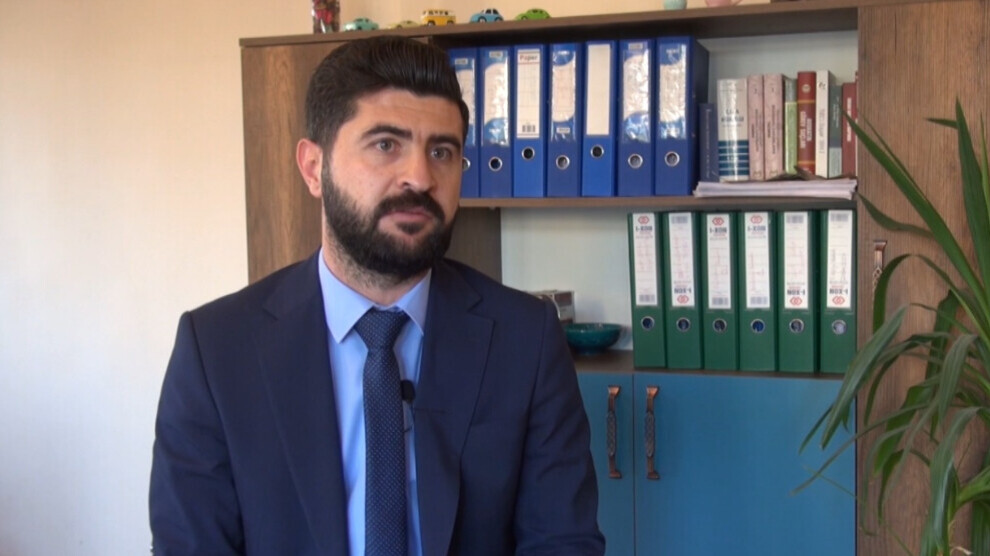Lawyer Muğuç: Isolation started with denial of Kurds
Muhittin Muğuç, an executive member of the Association of Lawyers for Freedom, said that the Kurds have been subjected to isolation since the foundation of the republic.
Muhittin Muğuç, an executive member of the Association of Lawyers for Freedom, said that the Kurds have been subjected to isolation since the foundation of the republic.

The isolation of Kurdish leader Abdullah Öcalan in Turkish custody for 24 years has been aggravated in recent years. There has been no news from Abdullah Öcalan for the last 28 months. All the applications filed by his lawyers and family to visit him on the prison island of Imrali are constantly rejected by the authorities.
Muhittin Muğuç, an executive member of the Association of Lawyers for Freedom (ÖHD), spoke to ANF about Öcalan’s isolation, which, he said, has no legal basis and came into the lives of the Kurds long ago.
Isolation started with Kurdish denial
Muğuç emphasized that isolation did not come into the lives of Kurds on Imralı, stating: “Isolation has been a part of our lives since the Kurdish people were left out of their position as a founding and fundamental element of the Republic, and no identity other than Turkish was acknowledged. This isolation was aggravated even more by the denial of the Kurdish identity, banning of the Kurdish language and changing of the names of villages and settlements that represent historical memory. Isolation was brought into existence once it was executed on Abdullah Öcalan and other prisoners on Imrali, and then extended to all prisoners. None of the prisoners on Imrali is allowed to see their families or their lawyers. This is no longer a legal issue and has gained a social dimension.”
NGOs should be more effective
Muğuç criticized non-governmental organizations for adopting a passive approach towards isolation. He said: “The reason for this passive approach is the fact that campaigns against isolation are not result-oriented. This indicates that non-governmental organizations have moved away from society, and they do not organize themselves socially, as a result of which, campaigns against isolation remain weak. It is not possible for non-governmental organizations and other relevant institutions to get results without organizing individuals and society. It is not possible for non-governmental organizations to play an active role against isolation and other issues unless they embrace fundamental rights and freedoms and raise awareness within society.”
The state forces society to adopt an ambivalent approach
Muğuç emphasized that all these processes were affected by the fact that the state, which has kept the people under its thumb in a controlled manner, established psychological superiority. He concluded: “The most obvious demonstration of this fact is the most recent arrest of a journalist who spoke against isolation. The state apparatus that issued the arrest warrant clearly knows that this investigation will result in non-prosecution or acquittal. Still, the journalist in question was arrested to ensure state control on society. With these practices, the state is trying to prepare the ground to force society and its representatives to adopt an ambivalent approach concerning isolation. We, the ÖHD, are a non-governmental organization that advocates the protection of fundamental rights and freedoms under all circumstances. The ÖHD has always said that it has a right to have a say in every social issue, and it has a mission to conduct practical and effective work against isolation as well.”